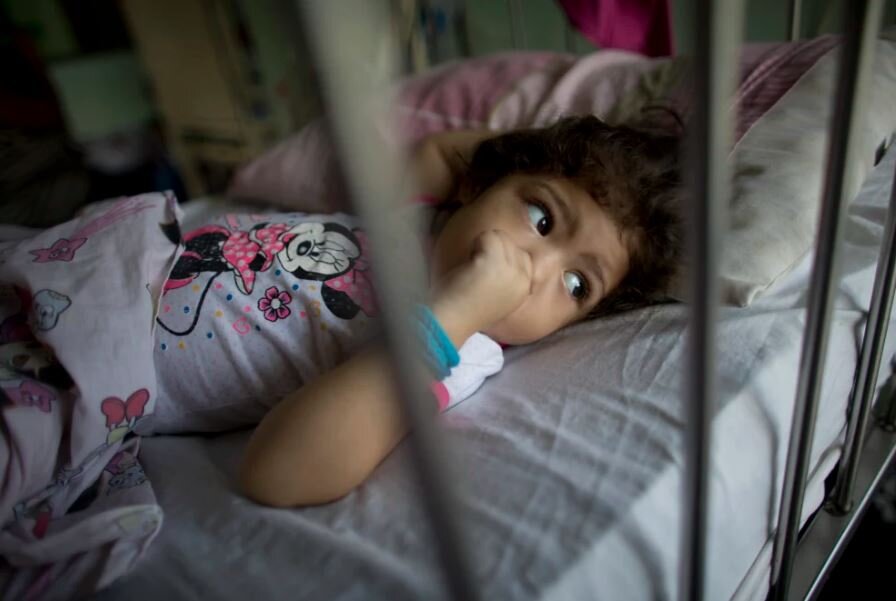Sanctions kill like bombs
The human toll of Washington’s economic warfare is huge, and must be addressed

TEHRAN – In early 2023, a nurse in a pediatric ward in Caracas described how a nine-year-old leukemia patient was wasting away. His chemotherapy drugs had vanished from hospital shelves, while his family had neither the money nor the visas to seek treatment abroad. Black-market alternatives were either unsafe or unaffordable.
No missiles were launched. No soldiers invaded. But in the quiet devastation of daily life under economic siege, a child was lost.
From Havana to Khartoum, from Tehran to Damascus, these stories are not outliers. They are symptoms of a global practice that hides behind technocratic language but delivers harm with brutal efficiency: economic sanctions. Once marketed as a humane alternative to war, sanctions have become weapons of mass disruption. They collapse currencies, block medicines, cripple infrastructures, and deepen poverty. Though supposedly “smart” and “targeted,” they often hit the sick, the young, and the poor the hardest.
In Iran, U.S. financial sanctions have made it virtually impossible to import life-saving medications even when humanitarian exemptions exist on paper. Banking restrictions and the fear of violating OFAC (U.S. Treasury) guidelines have led to widespread overcompliance by firms around the world. Pharmacies run out of insulin and chemotherapy drugs. Dialysis machines break down without spare parts. According to a 2019 report by Human Rights Watch, Iranian cancer and rare-disease patients suffered worsening outcomes due to restricted access to essential medicine. The Iranian rial, meanwhile, has lost more than 80% of its value since 2018, exacerbating poverty and inflation.
In Venezuela, a 2021 report by the UN Special Rapporteur on Unilateral Coercive Measures noted that sanctions have worsened food insecurity, disrupted the healthcare system, and contributed to large-scale migration. The country’s public revenue loss has been estimated at more than $17 billion per year since 2017. In Zimbabwe, two decades of sanctions have compounded economic decline and capital flight, without compelling meaningful political reform. A 2022 African Union report called for the lifting of sanctions, labeling them an impediment to sustainable development.
Despite claims of “humanitarian carve-outs,” in practice, sanctions regimes often suffocate supply chains. Humanitarian actors, banks, and insurers fearing penalties shun even permitted transactions. The UN Special Rapporteur warned in 2020 that this chilling effect turns legal exemptions into “empty formalities.” The result: hospitals without antibiotics, universities without research software, students locked out of global education platforms. In Iran and Syria, academic collaboration has become nearly impossible. U.S. export restrictions block access to online tools, cloud computing, and even platforms like Zoom.
Sanctions kill quietly. There are no bombed-out buildings, no burned villages, no frontline images for television. But there are infant mortality spikes, empty operating rooms, and families walking miles for fuel. This is war by spreadsheet administered through Excel sheets and compliance reports. No politician pays a price for imposing it. But those on the receiving end pay with shortened lives and broken futures.
Yet the landscape is shifting. Countries across the Global South are growing resistant. From BRICS to the Shanghai Cooperation Organization, new platforms are emerging that seek autonomy from Western-dominated systems. Currency swaps, regional payment systems, and de-dollarization efforts are gaining momentum. These aren’t just technical changes they are political declarations. As one African diplomat put it at a 2024 BRICS+ forum: “If you can sanction our children’s insulin, you cannot lead the moral order.”
To be clear, none of this exonerates misrule or repression within sanctioned states. But sanctions rarely impact ruling elites. Instead, they hurt civilians who had no vote in their government’s decisions. Institutions such as the IMF, FATF, and even some UN bodies have become entangled in enforcing these punitive regimes, often under the guise of neutrality. This structural complicity undermines the credibility of global governance itself.
In a world that claims to value human rights, we must confront the human cost of economic coercion. Military intervention is rightly scrutinized. Sanctions deserve the same moral and legal rigor. Because whether a child dies from a missile or from a medicine shortage, the outcome is the same. And the responsibility must be owned.
Leave a Comment